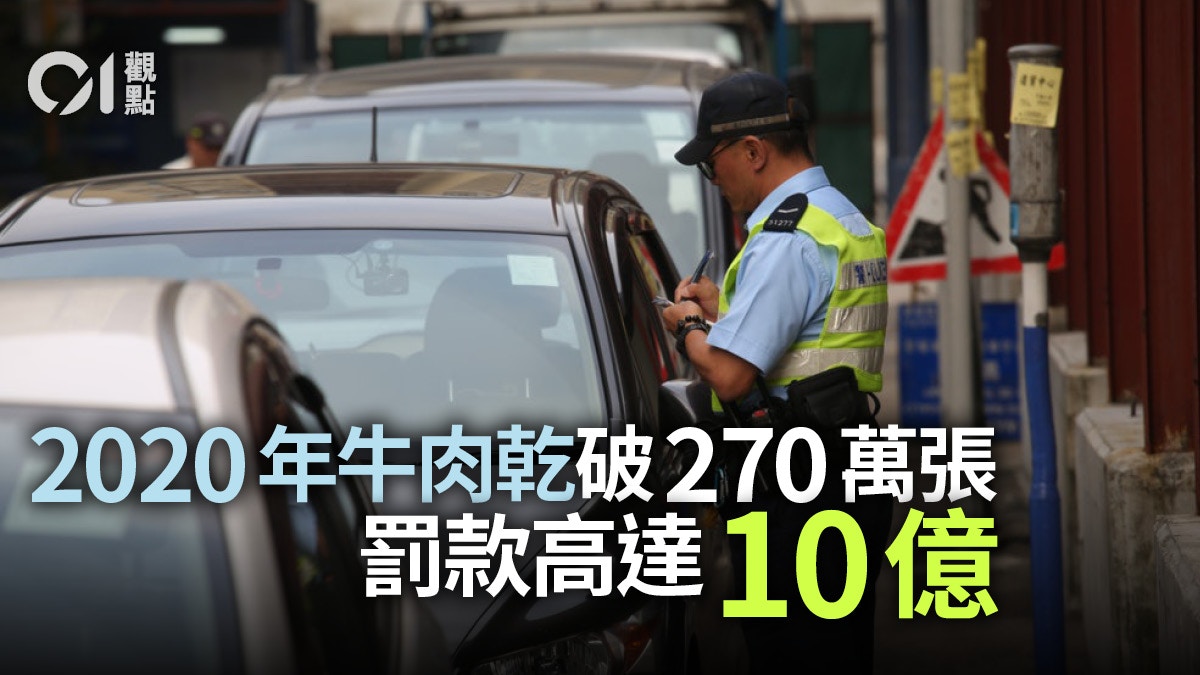01 view
Written by: Commentary Editing Room
2021-06-18 06:20
Last update date: 2021-06-18 06:20
Statistics from the Transport and Housing Bureau indicate that the number of fixed penalty notices issued last year has increased by 90%.
Even if part of the reason is due to the police's strengthening of law enforcement, it is believed to reflect the insufficient number of parking spaces in Hong Kong.
Given the inherent limitations of insufficient urban space and saturated road usage, the government's long-term transportation policy must also start to reduce vehicles from the source and encourage citizens to use more transportation. This is in line with the general trend of developing green cities.
The Secretary for Transport and Housing, Chen Fan, in a written response to Legislative Council Member Yi Zhiming’s question on Wednesday (16th), pointed out that the police issued a total of 2.7 million tickets for illegal parking last year, which is nearly higher than the 1.4 million tickets last year. 90%.
However, according to another set of statistics, the increase in the number of private cars last year was not significant, and the ratio of vehicles to parking spaces only rose from 1.09 to 1.1.
On the contrary, the number of motorcycles surged by nearly 6.5 thousand last year, but the number of parking spaces could not catch up. The proportion dropped from 0.61 the year before to 0.56. At the same time, the shortage of commercial vehicles such as trucks, coaches and non-franchised public buses is still severe. , The ratio is 0.62 to 0.64.
Excluding the impact of the monthly rental of private car spaces, commercial vehicle owners should be the main victims of the shortage of parking spaces.
Illegal parking of non-commercial vehicle owners
Under the constraints of the lack of urban space, many professional drivers do not illegally park everywhere for convenience, but take risks because it is difficult to find a parking space. However, they are often charged by the police, and their entire day income is wiped out.
Even if the government claims that it will actively look for parking places for the vehicles concerned, it still depends on the progress of the land search and the opinions of local people. Therefore, it is difficult to create more than 20,000 parking spaces in one hour or three.
Therefore, the government may formulate a transitional policy in two ways. One is to relax the handling of illegally parked commercial vehicles from midnight to early morning without affecting the traffic flow on the original road; the other temporary plan is to rezone the government’s wasteland. For example, Tuen Mun Lok arranged the land of the desalination plant as a parking lot.
This can not only increase the government's fiscal revenue, but also make good use of idle resources.
The traffic congestion problem during peak hours in Kwun Tong has not been eradicated.
(Profile picture)
The government must have a macro transportation policy
Even if the government has the ability to deal with the problem of insufficient parking spaces in the future, Hong Kong has a small land area and a large population and limited road space. It cannot always rely on the construction of roads and parking spaces to solve the problem of excessive vehicles.
After all, the government must start with a macro-level transportation policy and formulate corresponding countermeasures for "reducing cars at the source."
As of the end of 2019, the growth rate of registered vehicles in Hong Kong in the past 10 years was 31.22%. However, even if several major roads have been opened or expanded during the same period, the driving speed of major arterial roads in various regions during the morning peak hours has also increased from 30.1 per hour in 2009. The kilometer is reduced to 28.6 kilometers per hour in 2019.
It can be seen from this that under the inherent limitations of Hong Kong, it is really impossible to allow the free growth of vehicles.
Commercial vehicles have economic functions and may be more efficient when used on the road.
However, as the experience of Singapore shows, the effect of the government's tax measures to curb the number of private cars is often difficult to last. Therefore, the government will eventually have to introduce a vehicle quota system to stipulate that only the highest bidder can obtain private car ownership, thereby directly setting the upper limit of vehicle growth. .
In addition, the congestion levy in the United Kingdom is also considered an effective measure, that is, the levy must be paid when entering the specified area at a specified time, which can also cause more people to switch to public transportation.
However, it can be seen from the delay in the implementation of electronic road pricing by the Hong Kong government that the government's execution may be the crux of the unsolved traffic problem.
The Hung Shui Bridge Station project is expected to take six years from conception to completion, spanning nearly 20 years
The Transport and Housing Bureau policy must ensure that the community is accessible and livable
Uber abandons the relocation of Hong Kong, the government should do more
The Transport Department finally gave the bus passengers a belated gospel
Chan Fan, Transport and Housing Bureau, Liberal Party 01 Viewpoint

